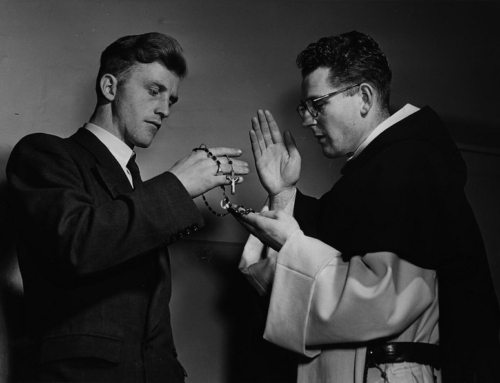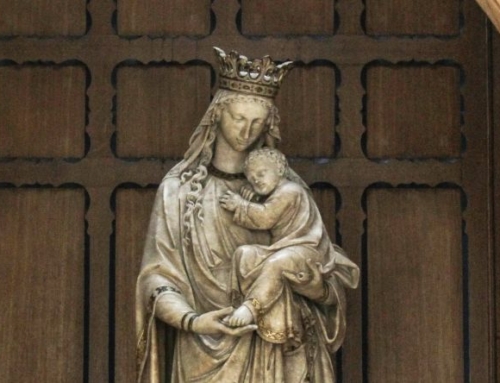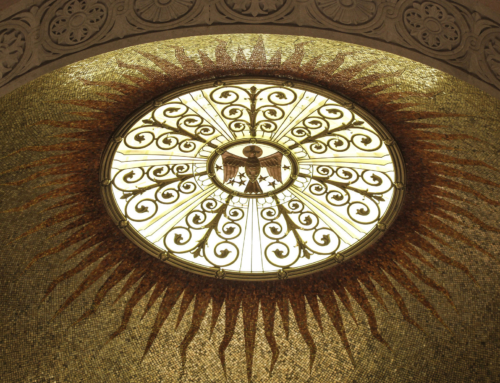Bishop Saad Sirop Hanna, with Edward S. Aris, Abducted in Iraq: A Priest in Baghdad. Notre Dame: Notre Dame, 2017.
“Christ is love and love was never meant to be easy. It is the hardest of all and yet it will always be the only answer” (168). So ends Bishop Saad Sirop Hanna’s recently published memoir on his abduction in 2006 by a militant group associated with al-Qaeda. Over ten years later, he reflects on this cataclysmic event, leaving his readers with a glimpse into the mystery of God’s love. Indeed, God has made Hanna’s life a living commentary on Luke 6:27: “But I say to you that hear, love your enemies, do good to those who hate you, bless those who curse you, pray for those who abuse you.” In the face of torture, hatred, and uncertainty, the love of Christ triumphed within Hanna, and now it shines forth brilliantly through his pen.
Iraq and her people were suffering greatly at the time of Hanna’s abduction. Returning to Baghdad to tend to his flock after studying in Rome, Fr. Hanna compares post–Saddam Hussein Iraq to “[a patient] who had just recently fallen, could barely stand, and was staggering on his feet” (95). Rubble, barbed wire, and foreign soldiers comprised the landscape. Car bombings and other attacks fomented fear and suspicion, sentiments that would divide Shiite, Sunni, and Christian.
On the Solemnity of the Assumption of the Blessed Virgin Mary, Hanna experienced this hatred against his own person. Abducted after Mass by followers of a branch of Sunni Islam known as Wahhabiyya and held in captivity for a month, Hanna suffered torture at the hands of his captors as they attempted to convert him to Islam and waited for ransom money. Wahhabi Muslims desire to return Islam back to its original principles, but they have no settled position on non-Muslims. This particular group of men, however, hated Christians, naming Hanna kafir, “infidel,” one who has sinned. On several occasions during Hanna’s imprisonment, they beat the handcuffed and blindfolded priest with sticks. In one chilling episode, after Hanna had managed to escape for a few brief hours, the men came with cables: “I fell forward, down on my knees and elbows, and before I could rise a little, or even put out a hand for cover, I felt the cable rip across my bare back once more, and again and again” (134). By faith, we can see in this horror a continuation of the Lord’s own Passion in his priest. Christ desired to allow Hanna to participate in his own redemptive suffering, to relive in his own body the mystery of Christ’s priestly, self-sacrificial love. And Hanna embraced the fullness of this conformation to Christ in his priesthood:
This life was of my choosing. I had dedicated myself to following the example of Christ, and, in the righteousness of my suffering, to endure through no act of hatred but solely through the openness of a love unyielding and unconquered; in that I felt a closeness to him and to the purpose of my being, and it gifted me with a greater strength and joy than I had ever known was possible. (108)
Fr. Hanna had his own Simon of Cyrene to accompany his passion. Abu Hamid was once a student, but his university was in a Shiite area, which had become dangerous for a Sunni. One of the few occupations remaining was cleaning guns for the soldiers and guarding prisoners. Abu Hamid and Hanna became as near to being friends as one can in such a situation. Taking pity on Hanna, Abu Hamid brought him salt and medication for a severe toothache; he would often cuff Hanna’s hands in front, where it was more comfortable, rather than behind; he tended to Hanna’s thirst; and once he even spoke out against the beatings Hanna received.
On another occasion, at one of the many houses in which Hanna was deposited (to keep his whereabouts secret), the owner, Ali, released him from his handcuffs, fed him, and even called the Americans, hoping for a rescue mission that, alas, never came to pass. Human encounters such as these, it seems, encouraged Hanna’s faith in God’s love.
Seeing God’s presence even in his captors, Hanna opened himself to forgiveness amid the torture, pain, and fear. Hanna realized that his captors themselves lived in the fear of losing their own loved ones to American raids. They themselves had to inform families of the deaths of their loved ones and grieve their loss. The irrationality of violence harmed all involved. Yet, in forgiveness, the love of Christ triumphs. On his way to freedom after his ransom had been paid, one of his captors asked:
“You don’t hate us, do you?”
It took me a second to be sure I had heard him right before I answered. “No,” I said. “No, I don’t hate any person. My faith asks this of me, to love all people. Even those who harm me. It’s true I don’t always accept the things they do, but I don’t hate them.” (155)
Love forgives all things, heals all things, transforms all things. The blood of Christ on the cross was not spilled in vain: participation in this great mystery of love changes the way we see the world and the way we encounter other people, for his blood was shed for all people. “It is the mission of love that Christ has asked of us, and every day and every hour it rises up to challenge us” (168). This is Hanna’s appeal: to allow love to inform completely our vision and actions in every situation. “Love must be the driving force for all people,” he writes, “to ‘love your enemy,’ to look beyond the threats of the here and now, to look beyond ethnicity, creed, culture, or religion, and to connect on a level of shared humanity” (168).
Love sees in every person the precious gift of a common humanity, the humanity in which Christ himself suffered for our redemption, the humanity that he now bears in glory, and the humanity that Christ assumed into heaven in the person of the Blessed Virgin Mary. In Christ’s name, all people are worth loving, no matter the cost. To this, Bishop Saad Sirop Hanna has given his witness.
✠
Download a PDF of this review here.



